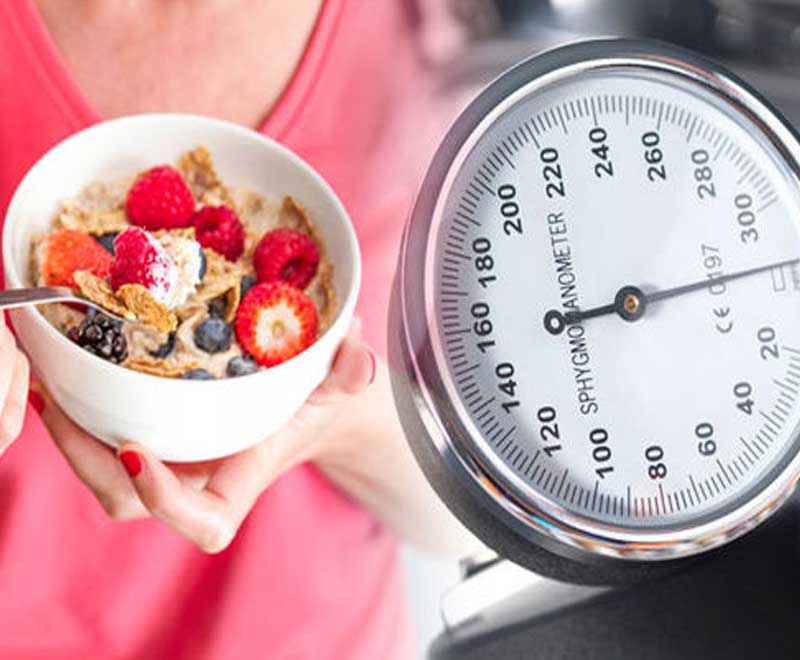
6 Simple Rules to Heart Healthy Eating
What is a heart healthy diet?
When I first became a cardiologist about 15 years ago, the answer to this question seemed simple. It was a low-cholesterol, low-fat diet. Unfortunately, that answer ended up falling apart. Turns out, eating foods with cholesterol probably doesn′t have much influence on your cholesterol levels; but eating processed, packaged foods with a "low fat" label has been terrible for our health.
Today, the answer to the heart healthy diet question is more controversial. Is it low carb? Plant-based, vegan, Mediterranean, gluten free, DASH? The list goes on, and each diet has their advocates.
But who is right? Unfortunately, the “experts” haven′t been very helpful. Each one seems to have research and reasons "proving" why their diet is best (and why you should buy their book).
There was a time when I wasn′t sure what to tell my patients about a heart healthy diet. So I did my own research. I read the important papers, attended conferences, talked to the experts and my patients to see if I could cut through the noise to come to a simple message I could share with my patients.
In the beginning, the more I learned, the more confusing it was. Research findings were often conflicting and seemed to change weekly. Each diet had testimonials of success - even the ones that seemed to directly contradict each other. In the end though, I came to see that we have been overcomplicating the task of eating well.
Here are the tips I give to my patients who are looking for a heart healthy diet (and by diet I mean the type of foods you usually eat, not restrictive eating to lose weight).
6 Simple Rules to Heart Healthy Eating
1. There is no one "right" diet for everyone
The beauty - and challenge - of medicine is how different we are and how the same treatment can lead to different responses in different people. A medication that saves one person′s life can cause a life-threatening side effect in another.
The same principle applies to diet. While one person may have amazing results with a certain diet, that does not mean you will have those same results. And just because a diet doesn′t work for you, doesn′t mean you failed - it may just mean that diet wasn′t right for you.
2. You should like it (even better if you love it)
Even if we had research that proved that one diet is best (and we don′t), if you won′t eat it, it won′t do you any good. We don′t do well when we feel deprived, and if you′re eating food you don′t like, you′re setting yourself up to fail.
Find a healthy eating style you love and that loves you back. There are too many great tasting and healthy options to settle for food you don′t like.
3. Avoid highly processed foods
If you only follow one of these 6 rules, make it this one. About 70% of the US diet is highly processed foods and it′s a major contributor to the obesity, diabetes and high blood pressure epidemics.
What are highly processed foods? There are several definitions, but here is one I like. Processed food is manufactured food, typically high in added sugars (like high fructose corn syrup) or refined grains (for example, white flour or white rice). These foods often contain many ingredients you would not recognize as food such as preservatives and other chemicals.
4. Include vegetables and other plant based foods
Mom was right. Eat your vegetables. Every reputable expert recommends that vegetables and other plant based foods should be a big part of your diet.
This doesn′t mean you need to be vegetarian (I′m not), but the simple act of getting planet-based foods into most of your meals can do wonders for your heart health.
5. Portion size still counts
Even if it′s healthy food, eating too much is still, well, too much.
Slowing down, eating mindfully, and serving your meals on smaller plates are all proven strategies to decrease the amount you eat without feeling like you are going hungry.
6. Eat at home
Who has time to cook anymore? YOU do! Cooking at home can be quicker than going out, and the benefits are indisputable. Better quality food, lower cost, a stronger connection with loved ones, and a healthier weight are just some of the benefits of home cooked meals.
You don′t have to be a master chef to put good quality, nutritious food on your table. Start with one or 2 "go to" meals that you enjoy and can prepare quickly. Or you could try one of the many meal delivery services that are available.
Eating heart healthy is not one size fits all, nor is it written in stone. For most of us, it′s a constant process of trying new things and judging the response. To make things easier, you can start with one of the major diets (i.e. Mediterranean, DASH, vegan, Paleo, etc.) and adapt it to your tastes and needs, or you can start with your own creation.
Health News










